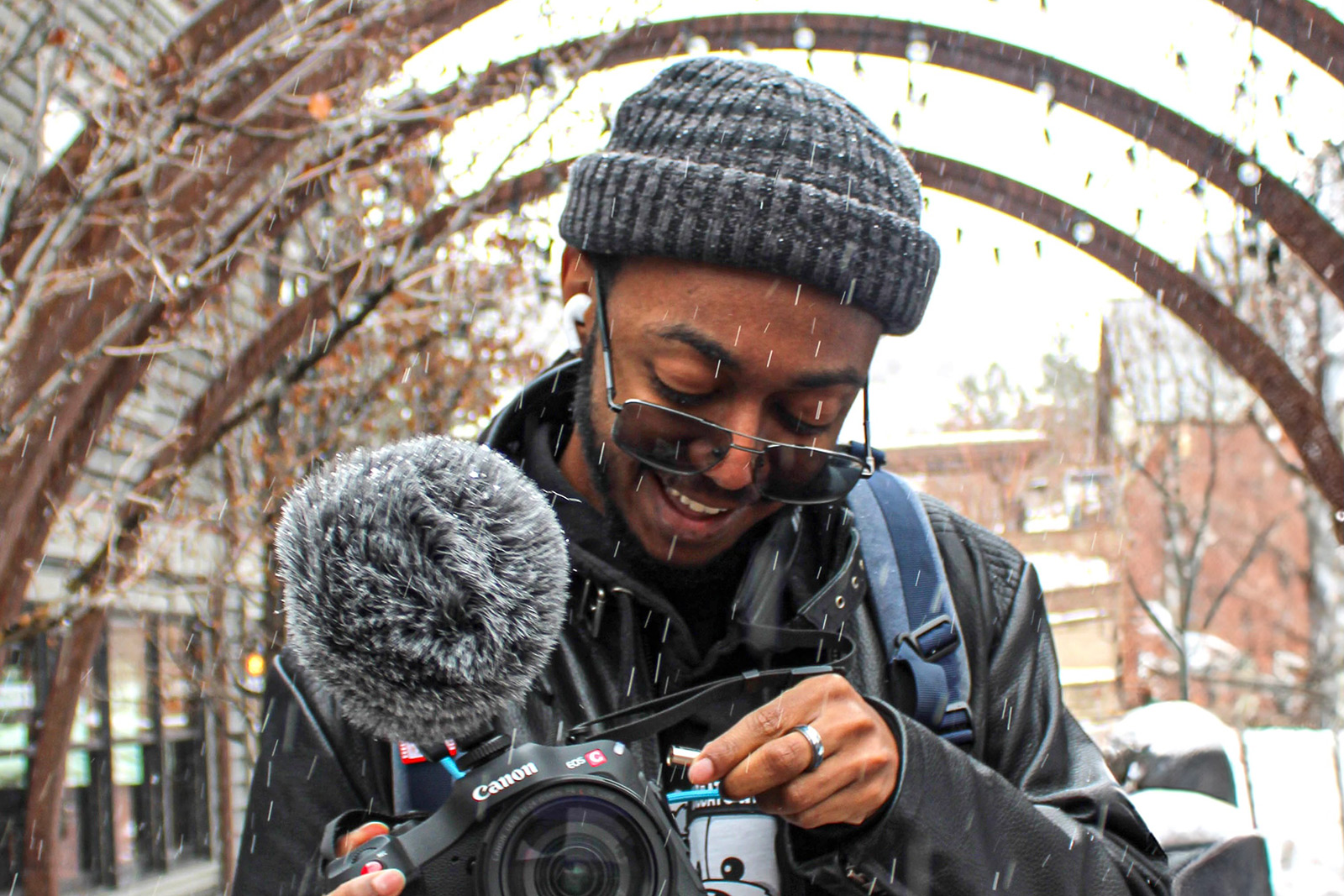Justin Hollis, a senior animal studies and film studies student from Hollywood, Florida, has one mantra that follows him everywhere: Don’t hold back.
After attending the 2024 Sundance Film Festival during Winter Term in January, Justin wrote a letter to his future self, outlining goals and motivations for his film endeavors in his final semester at Eckerd College.
Justin had grown up writing stories and creating comic books, and in college, he learned to embrace his creativity. His first film, Leave a Message, came about through a research project. It began with his curiosity about how mental health is portrayed in film. He was originally analyzing contemporary films, but Christina Petersen, Ph.D., Christian Nielsen Professor of Film Studies, encouraged him to go back even farther, starting with Alfred Hitchcock’s Psycho.
“I needed to figure out where it came from,” Justin says. “That allowed me to see an arc.”
He quickly noticed a pattern of villainization of mental illness through violent tendencies in characters of older movies. In more recent films, mental illness has become a trend, and it is widely romanticized. When he decided to make Leave a Message, Justin wanted to reject both of these portrayals and, instead, project a more realistic image of a character struggling to retain mental health.
“I wanted to walk the line: show it how it is without glorifying it,” he says. “It’s a human experience.”
Petersen’s academic influence has changed the way Justin views films, even for fun. Her expertise has shaped his creative eye. He can no longer watch movies without analyzing all the film elements.
His current work in progress, the short film Conscience, features a main character struggling with commitment issues in a new relationship coupled with substance abuse. It also will explore forgiveness, which was inspired by a film he watched at Sundance. Justin uses his personal experiences with mental health difficulties to influence his characters and plotlines.
“Filmmaking is a form of therapy,” Justin explains. “I express vulnerability through film characters.”
This urge toward vulnerability reflects the promise in the letter he wrote to himself last January and attempts to change the larger narrative of mental illness by spotlighting growth. His filmwork is an exploration of the dichotomy between mental health and mental illness. Justin seeks the bridge between them in his work, which is very different from the observations he’s made in his research. Dealing with mental illness in silence often leads to harmful outbursts, a trope filmmakers use for dramatic effect that isn’t always true to real experiences. Justin hopes his characters help audiences feel less alone.

Justin Hollis ’24
“If it helps one other person, I’ve done my job. Even if that person is me,” he says.
Justin dreams of being a director, but that hasn’t always been the case. He came to Eckerd as a marine science student and quickly realized that wasn’t his true calling. He switched his major to animal studies, but film is his real passion.
His family has been very supportive of his endeavors. His debut film’s appearance (and award for Best College Short Film) at St. Petersburg’s Sunscreen Film Festival in 2022 helped him realize filmmaking is a realistic career for him. After graduating in May, he plans to move to Atlanta with his cousin to be in community with other Black filmmakers.
Justin also founded E.Y.E. Productions, which stands for “Expand Your Exposure.” It’s a film pun and a metaphor. Exposure functions to let the light into dark places, which is exactly the mission of Justin’s films.
“The future is intimidating, but it’s also exciting,” he says. “I just hope [my work] impacts people.”















